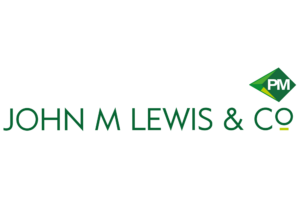When it comes to the intricacies of purchasing property in Derby and the rest of the UK, it’s crucial to understand the key disparities between freehold and leasehold ownership. These terms might sound familiar, but what do they signify, and how do they impact your property rights and responsibilities? In this article, our experienced solicitors at John M Lewis & Co delve into the nuances of freehold and leasehold properties to empower you with the knowledge necessary to navigate the dynamic realm of real estate.
Freehold Property Definition
Freehold property represents the most straightforward form of property ownership in the UK. When you acquire a freehold property, you gain complete ownership not only of the property itself but also the land it stands on. This means that you enjoy the absolute right to occupy and use the property indefinitely, without any time constraints.

Key Characteristics of Freehold Property:
- Ownership in Perpetuity: Owning a freehold property means you possess it for an unlimited duration. This form of ownership is often referred to as “fee simple absolute in possession,” providing you with the highest level of ownership rights.
- No Ground Rent: In contrast to leasehold properties, freehold properties do not necessitate the payment of ground rent to a landlord. You are exempt from ongoing financial obligations to the property owner.
- Enhanced Control: As a freeholder, you wield more authority over your property. You can undertake alterations and renovations to your home without seeking permission from a landlord, subject to planning and building regulations.
- Freedom from Leaseholder Agreements: Freehold properties are not bound by lease agreements, alleviating concerns about lease extensions or potential leasehold disputes.
- Passing on Ownership: You retain the freedom to sell or bequeath your freehold property to heirs, ensuring your legacy endures for generations.
- Maintenance Responsibility: While you enjoy complete control, you also shoulder the sole responsibility for maintaining the property and its surroundings, including repairs, insurance, and upkeep of common areas (if applicable).
Leasehold Property Definition
Conversely, leasehold property bestows ownership of the property itself but not the land it occupies. Instead, you enter into a lease agreement with the landowner, often referred to as the freeholder, for a specified period, typically ranging from 99 to 999 years. Once the lease term concludes, ownership of the property reverts to the freeholder unless you opt to extend the lease.
Key Characteristics of Leasehold Property:
- Limited Ownership Period: Leasehold properties feature a fixed term, and when the lease expires, ownership reverts to the freeholder. Extending the lease can be a costly and complex process.
- Ground Rent: Leasehold properties typically involve the payment of an annual ground rent to the freeholder. This amount can fluctuate significantly and may increase over time.
- Leaseholder Agreements: Leaseholders are bound by lease agreements outlining their rights and responsibilities. These agreements may encompass restrictions on alterations, subletting, and even pet ownership.
- Maintenance Costs: While the freeholder usually manages common areas like hallways and communal gardens, leaseholders share the responsibility for a portion of these maintenance costs through service charges.
- Lease Extension: If you wish to extend the lease on a leasehold property, it’s imperative to initiate the process well before the lease expiration date. Failing to do so can lead to complications and potentially result in the loss of the property.
Choosing Between Freehold and Leasehold
Selecting between freehold and leasehold ownership hinges on your personal preferences, financial capacity, and long-term objectives. Consider the following factors when making your decision:
Duration of Ownership: If your intent is to pass down your property through generations, freehold ownership is the obvious choice, as it provides perpetual ownership. Leasehold properties, with their finite terms, may not align with long-term investment goals.
Budget and Costs: Leasehold properties often entail lower initial expenses than freehold properties, making them more accessible for first-time buyers. However, it’s crucial to factor in ground rent, service charges, and potential lease extension costs when budgeting for a leasehold property.
Control and Flexibility: Freehold properties grant you greater autonomy and flexibility in your residence. If you value the freedom to make changes without seeking permission or wish to avoid the constraints of leaseholder agreements, freehold may better suit your needs.
Maintenance Responsibilities: Contemplate your willingness and capability to maintain the property and any associated outdoor spaces. Freehold properties necessitate full responsibility for upkeep, while leasehold properties typically involve sharing maintenance costs with other leaseholders.
Location: In some areas, leasehold properties are more prevalent due to limited land availability. If you have a particular location in mind, you may need to explore both freehold and leasehold options.
Future Plans: Reflect on your future plans and how they align with the type of property ownership you choose. If you anticipate a long-term stay, freehold may offer peace of mind. However, if you foresee a near-future relocation, leasehold might be more manageable.
Concluding Thoughts
In summary, the primary differentiation between freehold and leasehold properties in the UK revolves around land ownership and the duration of ownership. Freehold ownership entails complete control and perpetual ownership of both property and land, while leasehold ownership provides property ownership for a defined term but not land ownership.
Your choice between freehold and leasehold should align with your individual circumstances, financial considerations, and long-term aspirations. Thorough research and seeking professional advice, including legal and financial counsel, are imperative before making a decision. This ensures that you make an informed choice that aligns with your requirements and preferences in the complex realm of property ownership in the United Kingdom.
Curious to Learn More About the Distinction Between Freehold and Leasehold?
Our skilled solicitors at John M Lewis & Co are well-versed in this subject and are ready to assist with any further inquiries. To get in touch with us, please complete our contact form or call us directly at 0133 229 2204 to speak with one of our dedicated team members today.

